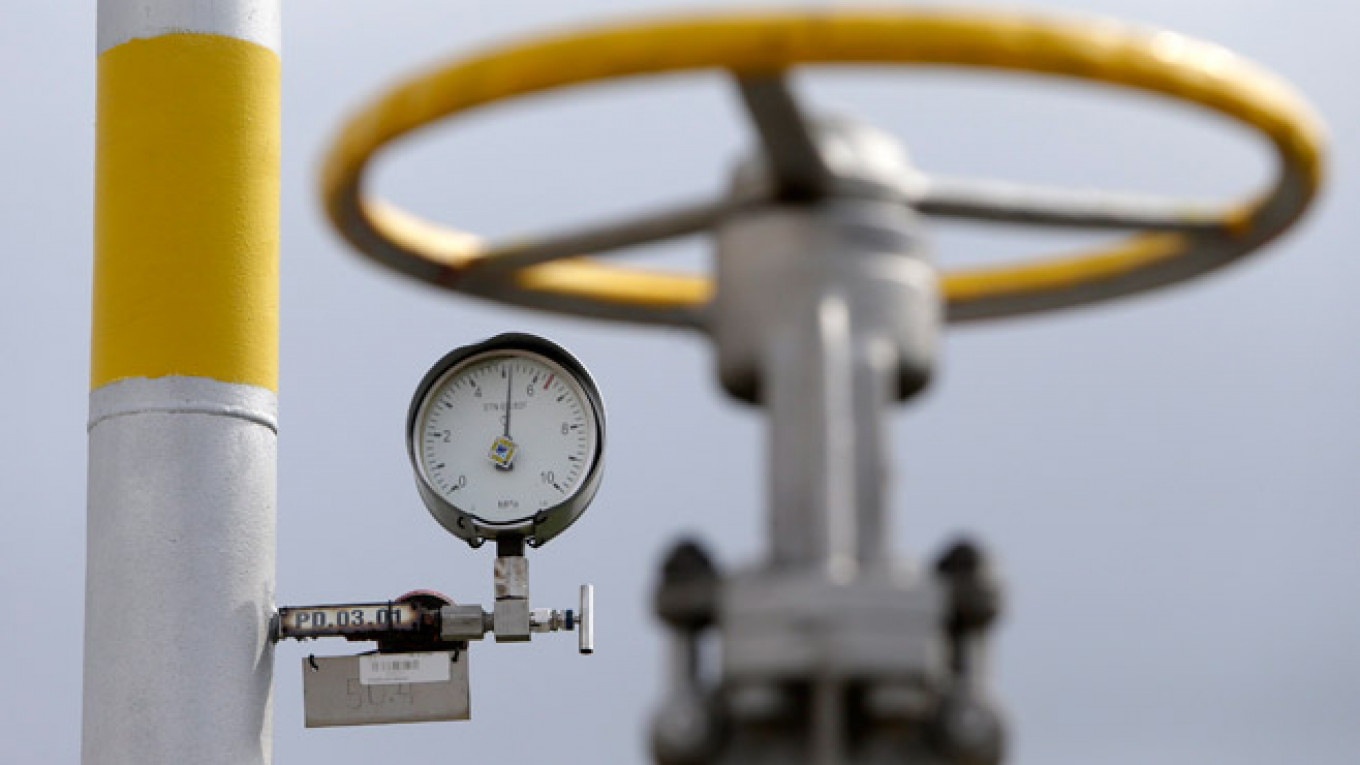European Union authorities could step in to manage the flow of gas between member states if failure to resolve the conflict in Ukraine by winter results in Gazprom halting supplies of Russian gas to Europe, according to a draft EU planning document leaked to the media.
"Market mechanisms may not be adequate" to ensure optimal use of gas in Europe if the West's confrontation with Moscow continues to escalate and Russia — which supplies Europe with a third of its gas, worth $60 billion to $70 billion annually — turns off the taps, Kommersant quoted the document as saying on Wednesday.
Further short-term measures to cope with a Russian cutoff include using bumper gas reserves in underground storage facilities, reversing gas supplies from countries that have a surplus of fuel and turning to liquefied natural gas, or LNG, the newspaper said.
The leaked report — a preliminary draft of a European Council report on energy security — is set to be discussed with EU members in late October.
Longer term, the report envisages diversifying supply away from Russia, which has put EU policy makers on edge twice before by limiting the flow of gas to Eastern Europe in 2006 and 2009.
The EU will rely on LNG supplies "from alternative sources" and will reduce overall gas consumption by using more renewable sources of energy, the report said.
Some of these alternative supply sources could come from the U.S. Washington currently restricts exports of natural gas and crude oil — a legacy of the energy shocks of the 1970s — but is in talks with the EU to make an exception to help it decrease dependence on Russian resources.
On Tuesday, EU Trade Commissioner Karel De Gucht told reporters at a briefing in Washington that discussion on energy supplies from the U.S. should be accelerated.
"It is important that we come forward with a position on that [energy agreement] as soon as possible, because you may have noticed that some things are going on in Europe," De Gucht was quoted by Reuters as saying.
De Gucht said even though the trade pact will likely not take effect for more than a year, Washington and Brussels could both benefit from a clear political agreement on energy sooner rather than later, sending a strong signal to Moscow about the European Union's reduced energy dependence.
However, even if U.S. exports rise, Europe is doomed to rely on Russian gas over the next decades as its recovering economy will consume more fuel, according to a recent report by Fitch Ratings.
About half of Russia's gas exports to Europe travel through Ukraine, where Western leaders accuse Russia of supporting separatists fighting in the east of the county, something Moscow denies.
Gazprom cut the flow of gas to Ukraine again in June, saying it was owed more than $5 billion for gas already delivered.
Gas destined for European buyers still flows through the Ukrainian pipeline system, but Russia has warned that if there is no settlement with Kiev before winter, Ukraine will likely begin "stealing" gas, putting European supplies at risk even without an explicit cutoff order from Moscow.
Contact the author at a.panin@imedia.ru
A Message from The Moscow Times:
Dear readers,
We are facing unprecedented challenges. Russia's Prosecutor General's Office has designated The Moscow Times as an "undesirable" organization, criminalizing our work and putting our staff at risk of prosecution. This follows our earlier unjust labeling as a "foreign agent."
These actions are direct attempts to silence independent journalism in Russia. The authorities claim our work "discredits the decisions of the Russian leadership." We see things differently: we strive to provide accurate, unbiased reporting on Russia.
We, the journalists of The Moscow Times, refuse to be silenced. But to continue our work, we need your help.
Your support, no matter how small, makes a world of difference. If you can, please support us monthly starting from just $2. It's quick to set up, and every contribution makes a significant impact.
By supporting The Moscow Times, you're defending open, independent journalism in the face of repression. Thank you for standing with us.
Remind me later.






